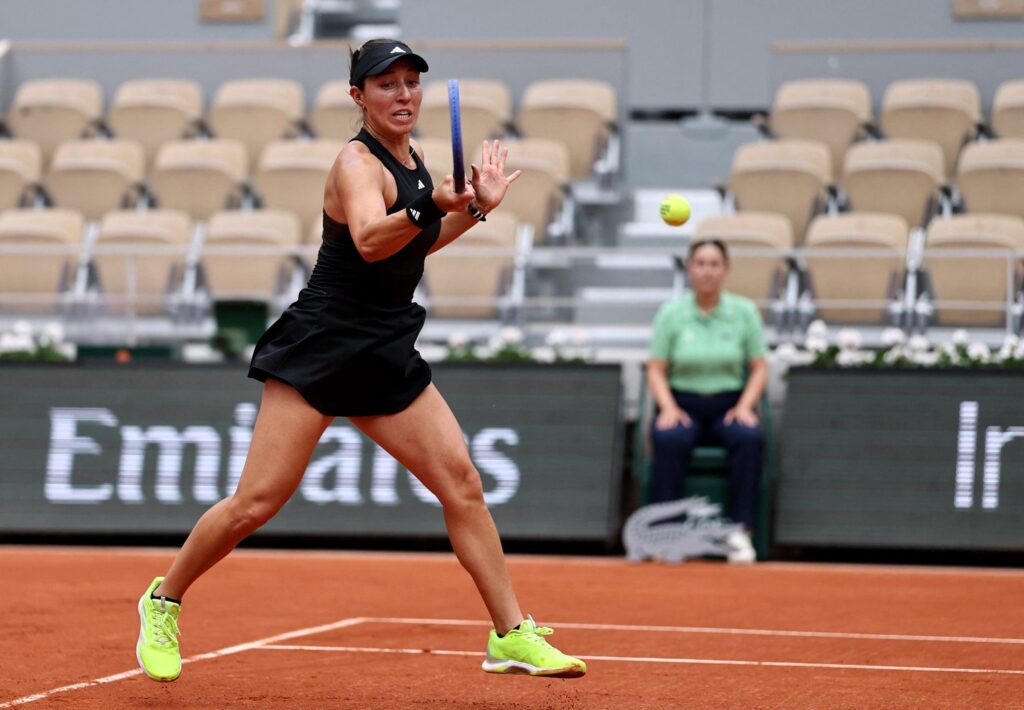When it comes to the grandeur of the French Open, the spotlight has traditionally shone brightest on the clay courts, spectacular rallies, and the thrilling clashes of tennis titans. But this year, a fresh controversy has emerged off-court that’s grabbing headlines—and it’s stirring the tennis world in a different way. At the heart of the storm is Jessica Pegula, a top-ranked player, who has publicly criticised the tournament’s scheduling, highlighting what many players see as a glaring issue: the scarcity of women’s night matches.
The Missing Women’s Night Matches Debate
Night matches at Grand Slams have long been a fan favorite. They bring a special aura to the sport—dramatic lighting, buzzing crowds, and intense atmospheres that make every point feel electrifying. For male players, night sessions have often been a stage to showcase their talent to the widest possible audience, including prime-time television viewers. However, at this year’s French Open, the schedule has tilted heavily towards men for night matches, leaving female players like Pegula frustrated and feeling sidelined.
Jessica Pegula’s critique has given voice to a broader grievance among female competitors. They argue that the lack of women’s night matches not only affects visibility but also impacts their earning potential, media coverage, and overall recognition in the sport. This isn’t just about equal court time; it’s about equality in spotlight and opportunity.
Why Night Matches Matter So Much
To the casual observer, a match is a match. But players, coaches, and tennis insiders understand the significance of when a match is played. Night matches:
- Attract bigger audiences both at the venue and on TV, leading to greater exposure for the players.
- Create iconic moments remembered for years, thanks to the intense atmosphere and dramatic lighting.
- Boost player profiles, helping them secure sponsorships and endorsements.
- Provide a level playing field in terms of media coverage and public interest for men and women alike.

With these advantages, it’s easy to see why the absence of women’s night matches at such a prestigious event feels like a missed opportunity—and an unfair imbalance.
The Backlash and Player Reactions
Pegula’s comments have ignited a wave of responses. Several players have echoed her sentiments, voicing their disappointment on social media and in interviews. They point out that the tournament’s decision feels out of step with modern tennis, which is striving for gender equality and broader appeal.
Some players have shared personal stories of how night matches have transformed their careers or boosted their confidence. Others argue that the French Open, as one of the four Grand Slams, should lead by example in promoting fairness across genders.
This collective pushback puts pressure on tournament organizers to rethink their scheduling priorities and ensure that women’s matches receive equal prominence.
Tournament Scheduling: The Challenges and Considerations
Of course, scheduling a Grand Slam isn’t easy. There are numerous factors at play:
- Player rest and recovery: Balancing match times so athletes get adequate rest between games.
- Court availability: Limited show courts with lights suitable for night play.
- Broadcast rights and TV schedules: Networks may prioritize certain matches to maximize viewership.
- Weather conditions: Rain or other interruptions can force changes to the timetable.
However, critics argue that these challenges don’t justify the stark disparity. Other tournaments have successfully integrated women’s night matches without major issues, proving that with intentional planning, equality can be achieved.
Historical Context: How Did We Get Here?
The imbalance in night matches isn’t a sudden problem. Historically, men’s tennis has dominated prime-time slots due to higher viewership and commercial interests. This longstanding practice has contributed to a cycle where men receive more media attention, which in turn reinforces their dominance in the spotlight.
But times are changing. The success and popularity of women’s tennis stars—Serena Williams, Naomi Osaka, Iga Swiatek, and many others—have challenged old narratives. Fans are demanding more equitable treatment and equal billing for the women who bring skill, drama, and charisma to the court.
Pegula’s criticism shines a spotlight on this evolving landscape, reminding organizers that the tournament must keep pace with the sport’s progress.
What Could Change Moving Forward?
The French Open—and other major tournaments—have a unique opportunity to rewrite the script. Here are some potential steps:
- Balanced Night Match Allocation: Ensure equal distribution of men’s and women’s matches in prime-time slots.
- Player Input in Scheduling: Regularly consult players to address their needs and preferences.
- Enhanced Broadcast Coverage: Promote women’s matches just as heavily as men’s, giving fans the chance to tune in.
- Transparent Scheduling Process: Share the criteria behind match timings to build trust and accountability.
Such changes could boost player morale, fan engagement, and the sport’s global appeal.
Why Fans Should Care
This debate isn’t just a player issue—it matters to fans worldwide. Tennis thrives on passion and connection, and the visibility of stars under prime conditions helps cultivate that bond. More women’s night matches mean more memorable moments, deeper stories, and fresh legends emerging in the glow of the floodlights.
Fans who demand fairness and inclusivity contribute to shaping the future of tennis. Supporting equal scheduling means supporting the growth and vibrancy of the sport we love.
Jessica Pegula’s Stand: A Catalyst for Change
Jessica Pegula’s decision to speak out is both courageous and timely. As a top athlete with a rising profile, her voice carries weight. By highlighting the schedule’s shortcomings, she’s pushing the French Open—and tennis in general—to recognize where improvements are needed.
Her criticism reflects a larger movement in sports towards equality, fairness, and respect for women athletes. It’s a reminder that progress often comes from those willing to challenge the status quo.

Conclusion: The Serve for Equality Continues
The French Open is more than just a tennis tournament; it’s a global stage that showcases talent, drama, and human spirit. Yet, the recent scheduling controversy reveals there is still work to be done to ensure all players get their deserved moment in the spotlight.
Jessica Pegula and her peers have opened a vital conversation about fairness, visibility, and respect for women in tennis. The hope is that the echoes of their voices will inspire change—leading to a future where women’s matches at the French Open are just as celebrated and anticipated as men’s, day or night.
For tennis fans, this is a moment to pay attention, support equality, and keep the conversation alive. Because in the game of tennis, every player deserves a chance to shine—especially when the lights are shining the brightest.


